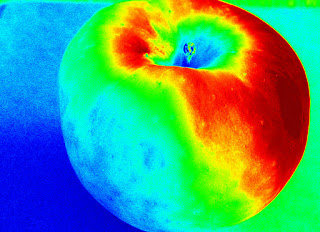Today's post was first published on November 11, 2008.
Today is Veterans Day, a day specifically set aside to honor all those who have served in our military and sacrificed for the common good of our country.
Veterans Day began in 1919 as, of course, a commemoration of Armistice Day, the end of World War I - "the war to end all wars." The horrors of World War I have been expressed in some amazing, and well-known, literature. For example, Dalton Trumbo's 1939 classic
Johnny Got His Gun. It is the story of a World War I soldier who awakens in the hospital with his mind intact, but his body destroyed, no arms, legs or even a face. Written as an anti-war piece, it is chilling and absorbing.
A famous poem from a soldier of World War I was written by a physician, Canadian Lt. Col. John McCrae. His poem,
In Flanders Fields, was one of my favorite poems to read when I was a kid, browsing through my mother's books of poetry:
In Flanders Fields
In Flanders fields the poppies blow
Between the crosses, row on row,
That mark our place; and in the sky
The larks, still bravely singing, fly
Scarce heard amid the guns below.
We are the dead. Short days ago
We lived, felt dawn, saw sunset glow,
Loved, and were loved, and now we lie
In Flanders fields.
Take up our quarrel with the foe;
To you from failing hands we throw
The torch, be yours to hold it high.
If ye break faith with us who die
We shall not sleep, though poppies grow
In Flanders fields.
Poppies have now become a symbol of remembrance for veterans. More poems of war and remembrance can be found at this
about.com link.
Thanks to all who have served, and particularly my dad, who served in the United States Navy during World War II.







